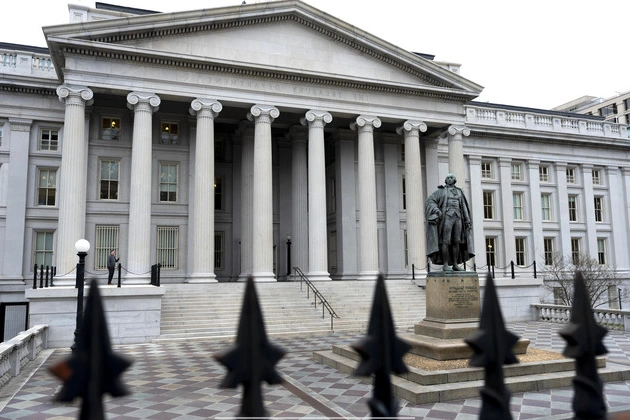
Recent disclosures have unveiled a potential conflict of interest within the Treasury Department, specifically concerning the financial holdings of a key official. Tom Krause, the lead official for Treasury’s DOGE team, reported owning substantial shares in various financial companies that have business dealings with the department, sparking ethics concerns.
Financial Holdings and Conflicts of Interest
Krause’s reported investments include significant holdings in major banks like JPMorgan Chase, Bank of America, PNC, and U.S. Bank, all of which provide services to the Bureau of the Fiscal Service. These financial institutions play crucial roles in disbursing government payments and managing debt, raising questions about the impartiality of decision-making.
Moreover, Krause’s ownership of shares in tech giants like Oracle, Google, and Amazon, along with big government contractors such as Accenture, adds another layer of complexity to the situation. These investments could influence policy decisions related to modernizing the department’s IT infrastructure and financial systems.
Ethical Implications and Expert Opinions
Government ethics experts and former Treasury officials have expressed alarm over these disclosures, highlighting the inherent conflicts of interest they reveal. Dylan Hedtler-Gaudette from the Project on Government Oversight described the situation as a ‘massive, glaring red flag’ that undermines the integrity of the Treasury Department.
Don Hammond, a former fiscal assistant secretary at Treasury, emphasized the problematic nature of financial holdings in companies that provide services to the department. He pointed out the potential conflicts arising from investments in banks that are key vendors for Treasury operations.
Julie Brinn Siegel, a former deputy chief of staff at Treasury, criticized the DOGE team members’ investments in Intuit, a tax preparation software maker lobbying against IRS Direct File. She questioned the team’s motives and raised concerns about conflicts of interest.
Call for Transparency and Accountability
Transparency and accountability are essential in maintaining public trust and upholding ethical standards within government agencies. The Treasury Department must address these ethics concerns promptly and take necessary actions to mitigate potential conflicts of interest among its officials.
As discussions surrounding Treasury’s financial disclosures continue, it remains crucial for stakeholders to monitor and evaluate the implications of these investments on decision-making processes and public trust.











